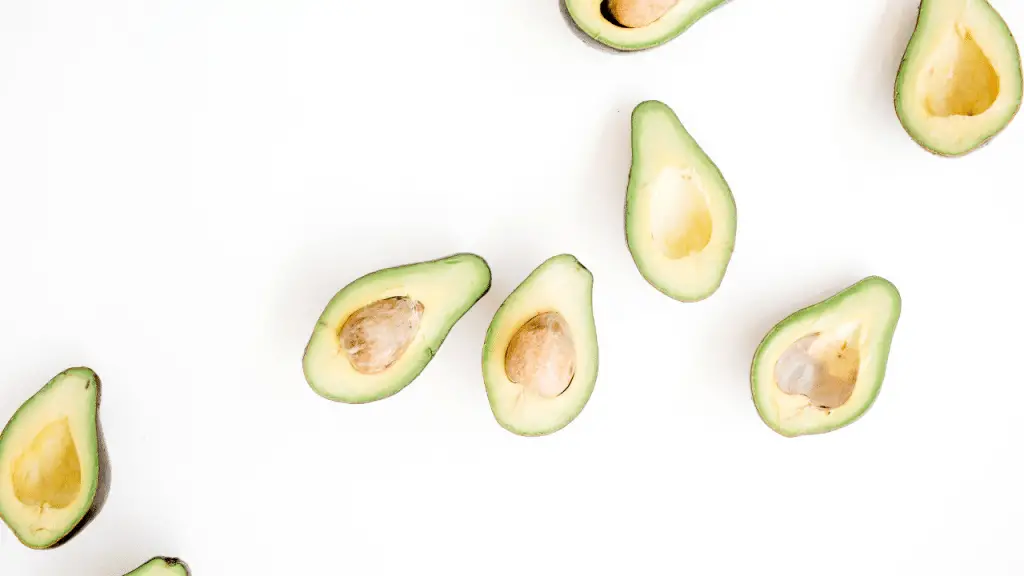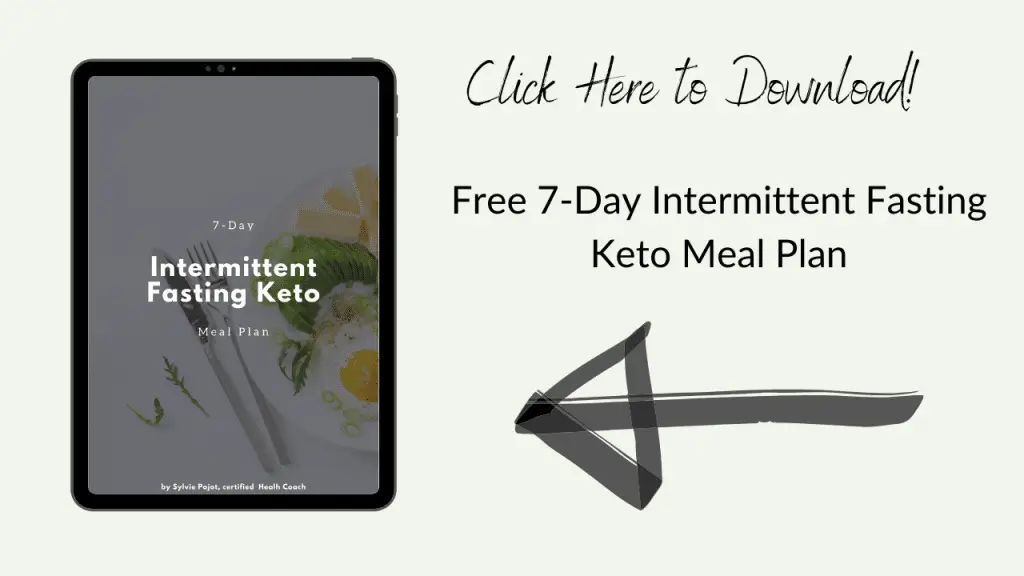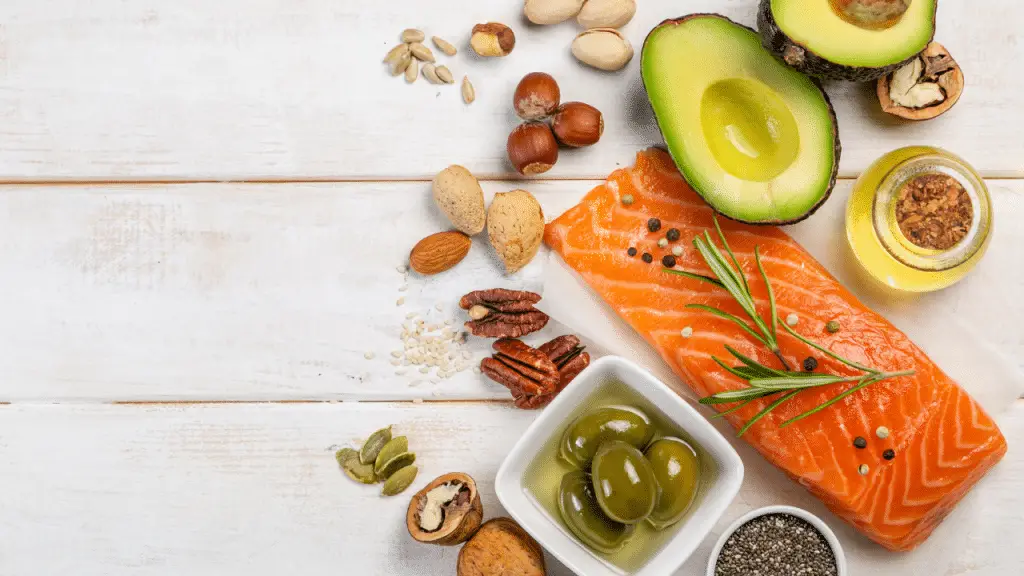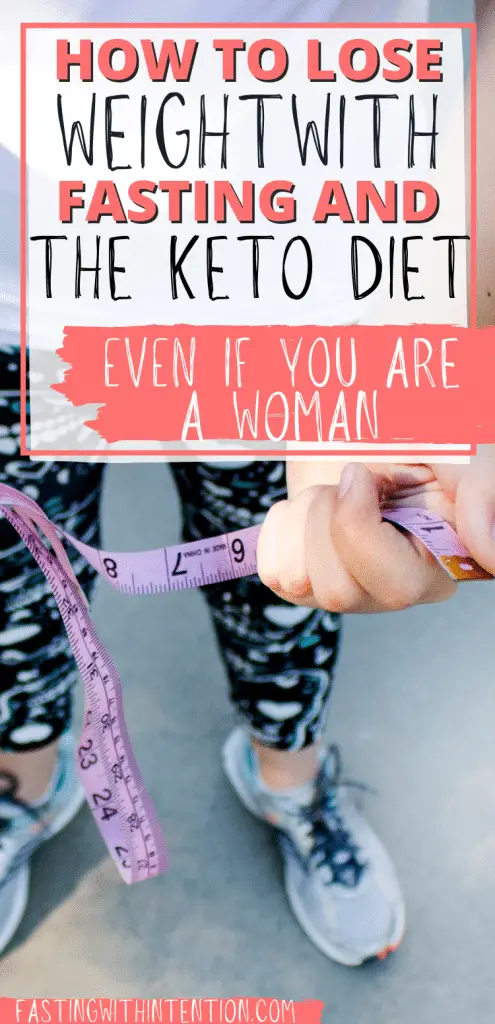Last week, I talked about my intermittent fasting and keto results. What I didn’t mention is the impact it had on my menstrual cycle. I didn’t mention it because I hadn’t experienced it yet. After realizing that my keto experiment had extended my cycle, I decided to dig further and research how intermittent fasting and the keto diet can affect women’s menstrual cycles. In this post, I will talk about the main ways intermittent fasting and the keto diet can affect a women’s cycle and give you some practical tips to implement this lifestyle safely.

Common Effects of Intermittent Fasting and Keto on Women’s Cycles
If you decide to give intermittent fasting and keto a try, you may notice it affects your menstrual cycles. Many women experience the following:
- Longer or irregular cycles
- Spotting
- Improved fertility
- Less painful periods
- Amenorrheahea
As usual, you will need to experiment and see what works best for you.
The HPA Axis
Women’s hormones are regulated by three different glands:
- Your hypothalamus (in your brain)
- Your pituitary gland (also in your brain)
- You adrenals (at the top of your kidneys)
These three glands interact together. This interaction is known as the hypothalamic-pituitary-adrenal (HPA) axis. Diet and stress are factors that will impact the HPA axis.

Main Ways Intermittent Fasting and Keto Can Affect Your Cycle
The Keto diet and intermittent fasting are combining three main factors that can affect your cycle: carbohydrate restriction, calorie restriction, and stress. All of these factors have the same thing in common: they cause an increase in cortisol.
Carbohydrate Restriction
There isn’t much evidence that carbohydrate restriction in itself cause menstrual dysfunctions, but some studies suggest it is a possibility.
For example, this particular study is interesting because it demonstrates the impact of macronutrient intake on hormonal function regardless of weight loss. Even though the subjects were men, it seems to indicate that a low carbohydrate diet enhances cortisol regeneration. Cortisol is a stress hormone and it may affect your cycles (read on for more info about that). That being said, some studies found an association between dietary fat restrictions and amenorrhea. We could hypothesize that any macronutrient restriction or change in diet could be a stress on your body.
By the way, if you would like a Step-by-Step Success Formula to Lose Weight, Kick the Cravings, and Tone Your Body in Just 30 Days, check out my 30-Day Intermittent Fasting Transformation.

Calorie Restriction or Weight Loss
Calorie restriction and weight loss have been known to affect women’s hormones for a long time! A woman’s body is extremely sensitive to energy fluctuations. Your body may perceive calorie restriction as a threat and shut down all “non-essential” body processes (like your menses).
Moreover, body fat produces leptin and there is a correlation between the amount of leptin circulating in your body and the activity of your hypothalamus. You need a threshold amount of leptin to signal the hypothalamus to kick off your menstrual cycle.
Stress
Calorie restriction and carbohydrate restriction are physiological forms of stress similar to exercise. However, implementing intermittent fasting and the keto diet may also cause some emotional/psychological stresses that will impact your cycles. For example, you may:
- Feeling deprived
- Feeling overwhelmed by a felt lack of understanding of how to “do it right”
- Having to learn a new way of cooking
- Not having a friend or a spouse who can share this particular way of eating
All these issues may create some stress that you will need to overcome. Stress releases cortisol, which affects your hormones.

A Word About Cortisol
As I mentioned already, there is some evidence to suggest that a low-carb diet, calorie restriction, and stress increase cortisol levels. It’s not necessarily a bad thing. Cortisol increases your metabolism, which increases fat burning. It even may lower inflammation!
However, whether in energy balance, essential nutrients, or body fat, women’s bodies quickly respond to deficiencies. It can be a balancing act to find just the right level of physiological stress that will benefit your health and not negatively impact your hormones. Let me share some practical tips to help you use intermittent fasting and the keto diet safely.
Practical Tips to Use Intermittent Fasting and Keto Safely
To increase your chance of success and mitigate the risk of experiencing menstrual irregularities after implementing intermittent fasting and keto, follow the following simple and practical tips.
Consume Plenty of Healthy Fats
As you are just getting started, make sure to add extra fats to your meal. An extra tablespoon of olive oil to your salad, some hemp hearts, more olives. Put an extra tablespoon of coconut oil in your sautéed veggies. It will help boost your mood and avoid a calorie deficit.
Oh! And don’t forget to use my easy and delicious 7-Day Meal Plan.

Don’t Restrict Calories
As you start experimenting, eat when you are hungry. Don’t worry about counting calories. My meal plan gives you the number of calories you are consuming for information purposes, but it doesn’t mean you should try to restrict calories. If you are hungry, add in some delicious keto snacks. Here are some of my favorite ones:
- Goat mozzarella and goat feta.
- Avocado with seasonings
- Eggs
- Olives
- Nut butter on a celery stick
- A handful of nuts
- Breaded chicken breasts from my 7-Day Meal Plan (yes, they are so good, I do want them as a snack)
As you know by now, calorie restriction and carbohydrate restriction may both cause stress on your body. It would be wise to start with one only and see how your body reacts.

Focus on Nutrient Dense Foods
Many people who get started with the keto diet eat fat bombs, keto bars, keto breads, and the like. I recommend you fill up on nutrient-dense foods as much as possible. Giving your body as many vitamins and minerals as possible will help mitigate any perceived treat your body may feel in response to the change in diet. If you stick the nutrient dense meals and snacks, you are on the right track.
Furthermore, I like to recommend More Greens as a supplement. It is filled with organic super greens, while remaining low in carbs (only 2 grams).

Start With a Two-Week Keto Cycle
Going into the keto lifestyle gradually may be a good option. I am planning on always just keeping a 2-week keto cycle and not going keto 100% of the time as I mentioned in my Intermittent Fasting and Keto Results. It doesn’t mean that needs to be what you decide to do, but if you decide to implement both intermittent fasting and keto at the same time, at least give your body a break from the keto diet for 2 weeks or so during that first month. Keep up with intermittent fasting and then start the keto diet again next month. See how your body reacts, if you notice any changes in your menstrual cycle and decide where to go from here.
Intermittent Fasting and Keto for Women Video
In Summary
There is no doubt that practicing intermittent fasting and keto may cause some hormonal changes that will impact your menstrual cycles. However, keep in mind that a change in your menstrual cycle is not necessarily bad. If you are feeling good and enjoying your new lifestyle, give it a few months to see if your body shifts into a comfortable “new normal.” Even though the keto diet did lengthen my cycle after my first 14-day keto experiment, I don’t see it as an issue for the time being. Change and dysfunction are not the same The change might end up being a positive one. You never know until you try!





